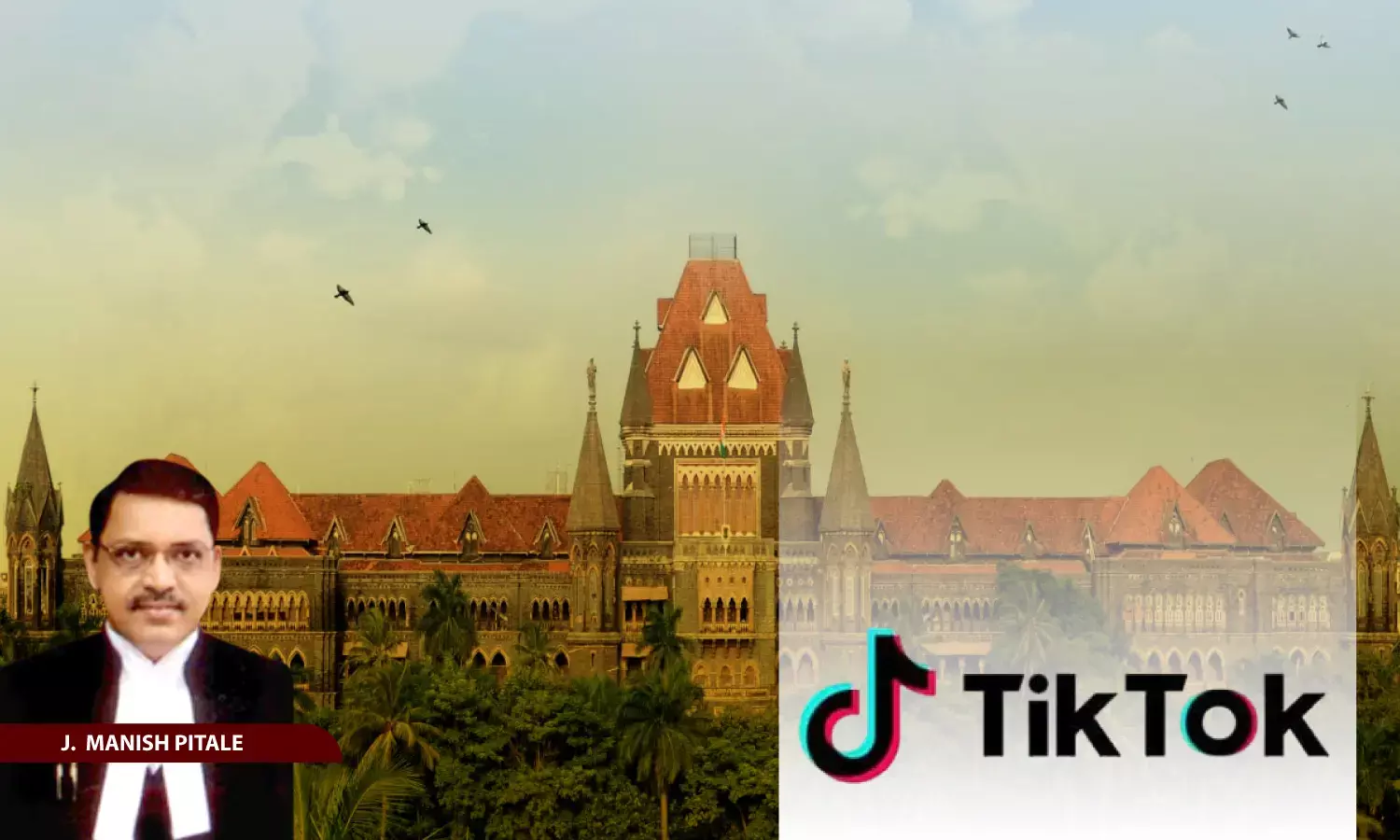TikTok Already Enjoys Statutory Protection, But Ban Justifies Denial Of ‘Well-Known’ Status: Bombay High Court
TikTok had challenged the Registrar’s order dated October 31, 2023, which had refused its application seeking the elevated status of a "well-known" trademark.

Justice Manish Pitale, Bombay High Court
The Bombay High Court upheld the decision of the Registrar of Trade Marks to reject the inclusion of TikTok in the official list of "well-known" trademarks under Rule 124 of the Trade Marks Rules, 2017.
A petition was filed by TikTok Limited. TikTok had challenged the Registrar’s order dated October 31, 2023, which had refused its application seeking the elevated status of a "well-known" trademark. Although TikTok is already a registered trademark in India, the company had sought the enhanced legal protections that are granted to marks officially recognised as well-known under Indian trademark law.
A Bench of Justice Manish Pitale said, “since the said mark is already a registered trade mark in India, it does enjoy all statutory protection available under the Trade Marks Act. Inclusion in the list of well known marks obviously gives added protection to a mark, but in the light of the fact that the application TikTok itself has been banned in India, which till date admittedly has not been set aside by any Competent Court or Authority, this Court finds that no error can be attributed to the said respondent in passing the impugned order while refusing the application of the petitioner for inclusion of its trade mark TikTok in the list of well known marks.”
The High Court did not find merit in TikTok's challenge. The Court held that while the Registrar’s reasoning could have been articulated with more legal precision especially in identifying the relevant statutory provisions the underlying rationale remained sound. The Court noted that the Registrar had considered various materials, including press coverage and official government actions under the Information Technology Act, 2000, which highlighted serious allegations such as data misuse, dissemination of morphed images, and instances of cyberbullying associated with the app.
Emphasizing the gravity of the national security concerns that led to the app’s ban, the Court stated, “These are serious matters, which cannot be ignored,” referring to the central government’s justification for the ban namely, concerns relating to India's sovereignty, integrity, defence, and public order.
The Court reaffirmed that Section 11(6) of the Trade Marks Act empowers the Registrar to take into account any relevant factor when deciding whether a trademark qualifies as well-known. The Court acknowledged that inclusion in the well-known trademarks list would confer additional statutory protection on TikTok, despite the app no longer being legally accessible in India. However, it concluded that the Registrar acted well within the scope of the law in denying TikTok the elevated status, particularly since the ban remains in effect and has not been overturned by any judicial or administrative authority.
Cause Title: TikTok Limited v. The Registrar of Trade Marks Mumbai & Anr., [2025:BHC-OS:8466]
Appearance:
Petitioner: Advocates Swati Mittal, Manisha Singh, Abhai Pandey, Anju Agrawal, Gautam Kumar, Ritika Agrawal, Paulome Mehta, Shubhankar Sharma, and Ishvendra Tiwari
Respondents: Advocates Yashodeep Deshmukh, Leena Patil, and V Deshmukh


